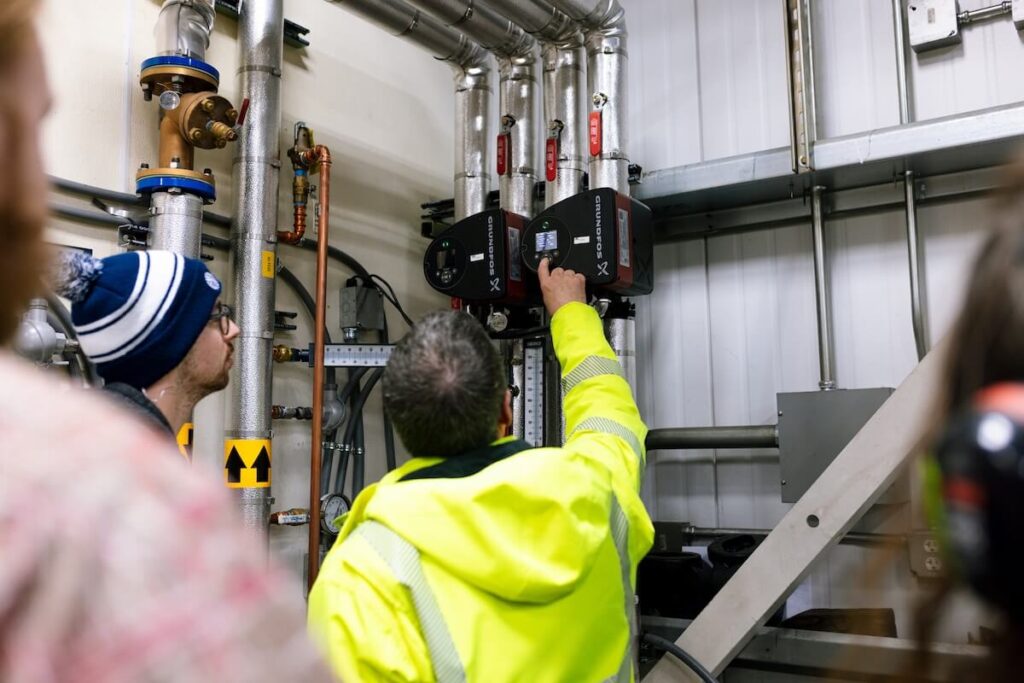Federal funding crucial component for community project
For years, the school heating system in Yakutat hadn’t been working right. This problem had chilling consequences.
“Our children were actually cold,” said Rhoda Jensen, Yakutat Tlingit Tribe executive director.
When Katya Karankevich of Alaska Native Tribal Health Consortium (ANTHC) investigated, she found 30-year-old pipes leaking glycol onto the ground. The system was in danger of total failure.

If that happened, water pipes would freeze and burst, damaging the school building. “The situation was incredibly dire,” Karankevich said. “We knew we had to spring into action and fix it.”
To heat the school, Karankevich championed building a modern heat recovery system from the community’s diesel power plant. Instead of releasing the byproduct heat into the air from burning diesel to make electricity, heat is piped underground to warm the school. It could also be extended to other vital infrastructure: the public safety building and the Community Health Center, which is the only medical clinic in Yakutat.

“Being able to heat them with basically little cost at all to the community is vital,” said Casey Mapes, Yakutat Power Plant manager and Chief of Yakutat Volunteer Fire Department.
Many partners joined the effort: the Alaska Energy Authority, the Leona M. and Harry B. Helmsley Charitable Trust, the Yakutat Tlingit Tribe, the City Borough of Yakutat, ANTHC and the Alaska Village Electric Cooperative (AVEC).
Even with all the partnerships enacted in Yakutat, they didn’t have the resources to bring heat recovery to the Yakutat Community Health Center. To do this, they needed federal dollars. They sought the support of the Indian Health Service, which funded one million dollars through the 2022 Inflation Reduction Act — an essential contribution to the project’s success.
At the health center, patients and health care workers now benefit from recovered heat. Less money spent to heat the building means more money can be spent on care.
Furthermore, the 2024 expansion to the health center reduces diesel use by more than 18,000 gallons annually. “Now that the health center is added on to that recovered heat loop from the power plant, they’re saving about $100,000 per year,” Karankevich said.
All of Yakutat benefits, and the children have a warm, safe place to learn. “Children are the center of everything and everything we do in Yakutat,” Jensen said.
The school saves $300,000 annually in what they would have spent to heat the buildings with heating fuel. In total, the project is expected to save about $9.25 million over the 25-year life of the system.
These savings can be re-invested in education, public safety, health and Tribal services, ensuring that Yakutat can continue to thrive for generations to come.